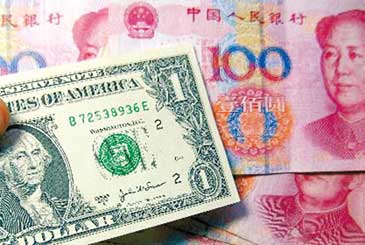Hot money inflows may ignite stock market
|
|
|
Hot money is regularly channeled into two major investment instruments in China, real estate and the stock market. [Global Times] |
As the US Fed decides how much money will spend to help jump start economic growth at home, the impact of that decision on China is forecast to create a new wave of hot money flowing into the nation's equity markets, economists said at a forum in Beijing Wednesday.
"The second round of quantitative easing of the monetary policy in the US will pump more hot money into emerging countries, including China, that is seeking higher returns," Guo Tianyong, a finance professor with the Central University of Finance and Economics.
Quantitative easing involves increasing the money supply by printing more money.
It can also include buying government bonds to reduce long- term interest rates and encouraging private banks to lend more.
Equity markets were expecting the US Federal Reserve to outline its monetary easing plans during Wednesday's scheduled meeting.
The Shanghai stock market has leapt about 15 percent since end of September, fueled by a price hike in commodities and energy stocks such as coal and non-ferrous metals.
Since most commodities are priced internationally in US dollars, the depreciation of the US currency will push commodity prices higher.
Hot money is regularly channeled into two major investment instruments in China, real estate and the stock market.
With the country's tightening measures over the real estate sector having cooled down residential speculation since April, large sums of hot money has shifted from the property sector and into the stock market, said Zhao Xiao, professor with University of Science and Technology Beijing.
Hot money inflows started to pick up in September as demonstrated by the increased amount of yuan used in foreign currency transactions, which rose 19.19 percent month on month to 289.6 billion yuan ($43.34 billion), a new high since January.
With the expected inflow of hot money, there is still room for the stock market index to go up as the Chinese economy enters into a cycle of new growth next year, University of Science and Technology's Zhao said.
Currently the stock market doesn't reflect economic fundamentals, said Teng Tai, chief economist with Minsheng Securities.
Despite China's fast GDP growth of 10.6 percent in the first nine months, the Shanghai composite ended slightly down at 3030.99 points at market close Wednesday.
 0
0 







